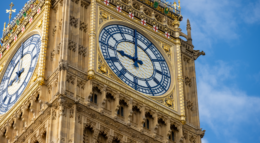
EXPOSED: Inadequate WHO Must Change
Given its record of controversy and failure, it is time we started questioning the actions of the World Health Organisation, argues Jack Rydeheard
The World Health Organisation (WHO) has always split opinion. As a UN body, this is perhaps inevitable due to the implications and nature of its investigations, work and findings.
But what is the WHO?
The WHO is the predominant internationally-recognised body specialising in international public health. It is a UN subsidiary and receives its funding through the usual methods – that is to say from the governments of countries all over the world.
Is it fit for purpose?
The answer to this question would depend largely on who is asked, but scepticism is rife. More so in this time of worldwide crisis, nation states' and their citizens' confidence in the institution have become significantly more strained.
The WHO last hit the headlines following the Ebola outbreak in West Africa in December 2013, a crisis which similarly to Covid-19 started with transmission to a human from a bat. During that crisis, the WHO sat on information for months, before later declaring a public health emergency no less than nine months later, in August 2014.
A Liberian member of a specialist panel, convened in 2015 by Harvard's Global Health Institute (HGHI) and the London School of Hygiene & Tropical Medicine (LSHTM), Mosoka Fallah of the campaign group Action Contre La Faim International, commented that the WHO response was "late, feeble and uncoordinated".
The WHO itself also admitted that it was "ill-prepared" for the outbreak, and that it had learned the most basic of lessons in that "communicating more clearly what is needed" was something that it could take from its Ebola experience.
Has the WHO learned its lesson?
It took exactly six weeks for the WHO to come up with a name for the virus. It took them nearly four weeks from the point of notification from China to declare the outbreak to be a Pandemic, despite reports of the disease in 21 countries over the weeks leading up to this point and despite China introducing screening in public places and adopting Class A measures to prevent and control the virus ten days before.
It might well have seemed obvious to even your average commentator, such as myself, to see 10 Chinese cities and circa 20 million people in lockdown nearly a week before that announcement was made.
This is a very damning timeline, considering what it had supposedly learned from the last serious outbreak back in 2013.
The Leadership of the WHO
Another failing of the WHO is to exile the likes of Taiwan and Hong Kong; two of the earliest affected countries but two countries unable to voice their concerns. As part of the UN, the WHO is forced to adhere to the 'One-China' policy and will not recognise them as formal members.
The WHO must become non-political, and admit countries like Hong Kong and Taiwan, but also Scotland and Wales, who we see every day announcing separate Covid-19 figures. Only then will we see the most efficient structure to enable the global body to tackle crises like the one we currently face.
On a slightly more sympathetic note, the WHO may have a significant amount of influence and responsibility but it has no hard political power. It has no ability to draw up sanctions or penalise member states. It relies solely on a budget which is smaller than some university hospitals and the reputation of its delegates.
However, as much as I would like to attempt to believe otherwise, it is an organisation which is political to its core.
Donald Trump has recently announced his plan to withdraw funding from the WHO after weeks of threats, nicknaming it the 'Chinese Health Organisation'. But does he have a case?
Recent WHO Presidencies
The past two presidents of the WHO have both been nominated by the Chinese government; Margaret Chan, a Chinese national, and now former Ethiopian Health Minister Tedros Adhanom Ghebreyesus.
The reasons for their nominations are somewhat simple to understand. Margaret Chan held a number of positions in the China-dominated Hong Kong government, before eventually leading the Department of Health. From there she was nominated to take office as the Director-General of the WHO.
Tedros Adhanom Ghebreyesus is an Ethiopian national. His history includes being a prominent member of the violent Communist Tigray People's Liberation Front (TPLF) in Ethiopia, which seized power as part of the Ethiopian People's Revolutionary Democratic Front in the country in 1991. The Communist bloc of splinter parties recently held 500 of 547 seats in the Ethiopian parliament, only having had three different leaders since 1988 and with each leader being chosen in an internal party caucus.
All parties involved, with the exception of the formerly dominant Tigray People's Liberation Front, formed the 'Prosperity Party' in December 2019 in an effort to distance itself from ethnic federalism to the deep dissatisfaction of the TPLF. They were the only party not to join the newly-reformed governing party, with the Prosperity Party now holding 512 seats out of 547 in the Parliament.
Such dominance by a communist bloc in a governing institution is very replicative of the Chinese system and it is perhaps no surprise that China were to nominate him for the post.
The current head has also been no stranger to scandals. Before he was even appointed, he was accused of covering up three separate Cholera epidemics as Health Minister. He also appointed Robert Mugabe to a role as a WHO Goodwill Ambassador on merit of "health promotion" and is the first ever director-general of the WHO not to be a medical doctor.
The fact that our allies are questioning the actions of the World Health Organisation should be a thing of celebration for a democratic institution. Given its record of controversy, we should be very careful where we place our trust, and the WHO must react and begin to correct its failings.









